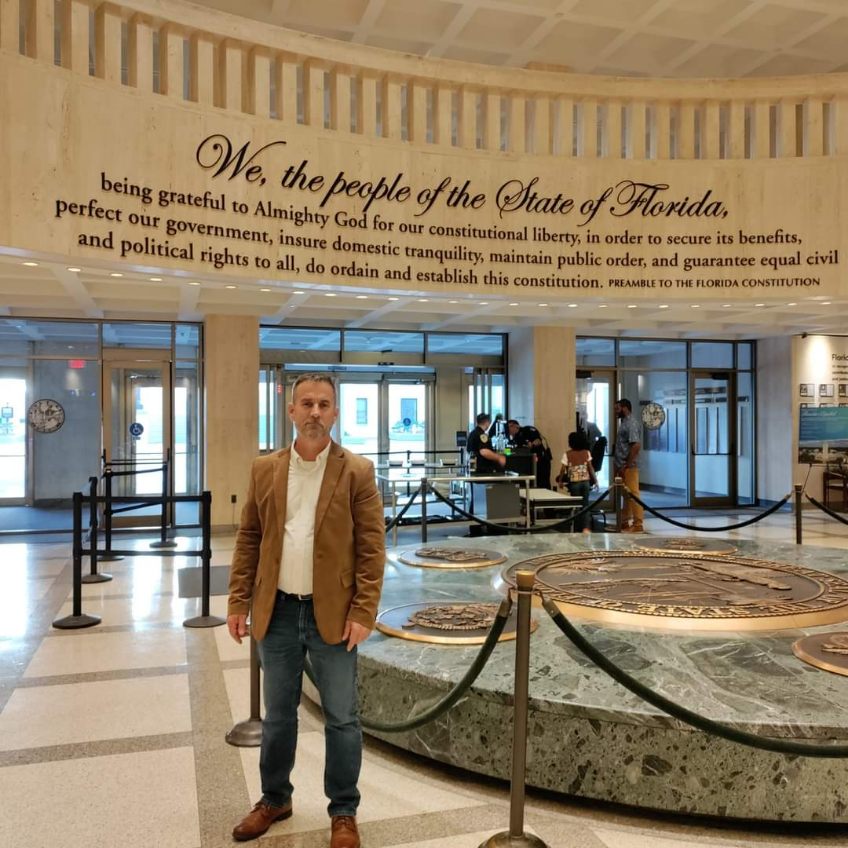Lawmakers in Tallahassee have repeatedly shot down efforts to bring accountability to local government. But the movement’s proponents aren’t going away.
Recall Florida is a nonpartisan group that, since 2020, has been advocating for an amendment to the Florida Constitution that would allow voters in every county to recall their local elected officials. Presently, the recall process is only available to voters in 20 of the state’s 67 counties and in municipalities.
Under current statute, only those counties classified as “charter counties” are legally able to recall their elected officials. Charter counties are counties that have formal, written governing documents (a charter) conferring the powers and duties of government within their jurisdiction.
The 2023 legislative session marked the third year Recall Florida has sought to guide their proposal through the Legislature in order to get it on the ballot statewide for voters’ approval. But while the legislation saw major success in the House, it was ultimately killed in the Senate.
The legislation, House Joint Resolution (HJR) 131, Recall of County Officers and Commissioners, was championed by Rep. Joel Rudman (R-Navarre) and brought to the House floor for two readings.

As the Pensacola News Journal noted of Rudman’s bill:
State statute 100.361 provides in [charter] counties for the removal of public officials for seven specific infractions: malfeasance, misfeasance, neglect of duty, drunkenness, incompetence, a permanent inability to perform official duties or a felony conviction involving moral turpitude.
Rudman’s bill, according to [co-founder Carmen] Reynolds, simply extends the provisions of the existing law to include the 47 counties not presently covered under 100.361.
On the first reading, the bill passed without any objections.
This pushed the bill forward for a full House vote. That vote was 113-1 in favor of the bill. Given the overwhelming support in the House, Recall Florida expected the Senate to give it similar treatment.
The bill was put into Senate messages and sponsored by Sen. Jay Collins (R-Tampa). As part of the process, the Senate had to take the bill out of messages and schedule it for the last committee hearing (Rules), which would have sent it to the Senate floor. However, the chamber instead allowed the bill to die without a Rules Committee hearing.
These events have prompted Recall Florida founder Chance Johnmeyer to consider filing a federal Civil Rights complaint against Senate President Kathleen Passidomo, who, he argues, has violated the 14th Amendment of the Constitution by keeping the recall bill from getting on the ballot.
The 14th Amendment states that “No State shall make or enforce any law which shall abridge the privileges or immunities of citizens of the United States.”
Recall Florida maintains that the ability to recall elected officials is a power that falls under “the right of the people peaceably to assemble, and to petition the Government for a redress of grievances,” as protected by the First Amendment.
Speaking of the Senate, Johnmeyer said: “They know it was a violation of the First and 14th Amendment and they refuse to resolve the issue by allowing it to go through the legislative process.”

The Recall Florida website makes the case that removing corrupt officials from office immediately is more desirable than allowing them to finish out their terms:
By joining our time, talents, and treasure we can influence our Legislature (both House and Senate) to listen and pass a bill to give “we the citizens” a tool to remove corrupt county officials. This process requires a 3/5 up vote in both chambers to be placed on the 2024 Ballot. This Constitutional Amendment would then require 60% of all participating Florida voters to vote “YES” in order for it to pass into law.
Elected office is a position of public trust. If a county official violates that public trust through say … acts of Malfeasance, or Misfeasance, to name a few, outlined as Grounds for Recall in F.S. 100.361, the people should be able to remove that individual through an exacting, detailed and ordered process already stipulated in this statute. Waiting until the next election will almost ensure more damage to their home county’s public systems. We want a better Florida, so we are working hard to create a way for the people to hold their local politicians accountable.
Speaking to The New American, Johnmeyer stated, “The recall process goes all the way back to the 17th Century. George Washington talked about recall. James Madison talked about recall in the Virginia Plan before the Constitution.”
He also asserted that the recall process empowers citizens with a voice for demanding accountability and petitioning the government for a redress of grievances — a voice currently not provided even by institutions such as the Florida Commission on Ethics, which was created by the Florida Legislature in 1974 for the purpose of investigating allegations of breached public trust by public officers other than judges.
Johnmeyer argues that because the Ethics Commission is a government entity funded with public funds, it cannot be fully trusted to properly investigate government officials or hold them accountable. “The people really don’t have a voice when it comes to redress,” he said. ”The Ethics Commission is paid for by government dollars—the people’s dollars.”
The Recall Florida founder concluded that the Senate’s decision to block their bill’s advancement shows a distinct disconnect between politicians and the people.
“Our elected officials clearly do not fear us,” Johnmeyer said. “Because if they feared the citizenry, the outcome would have been different.”



